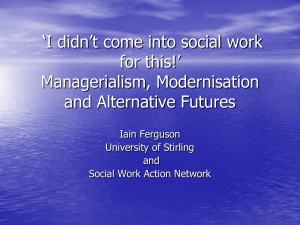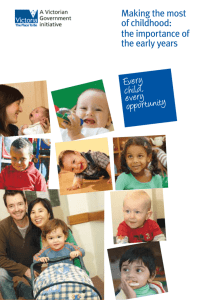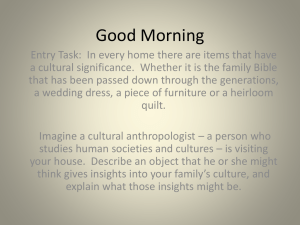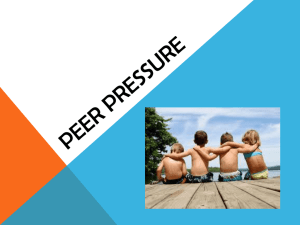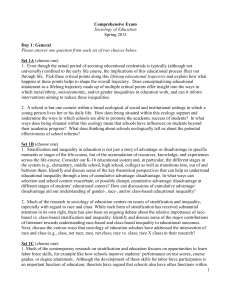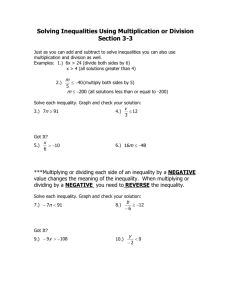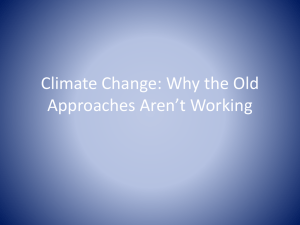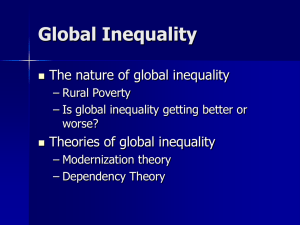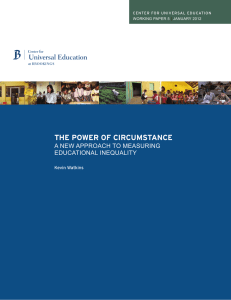Learning from other disciplines and sectors Educational
advertisement
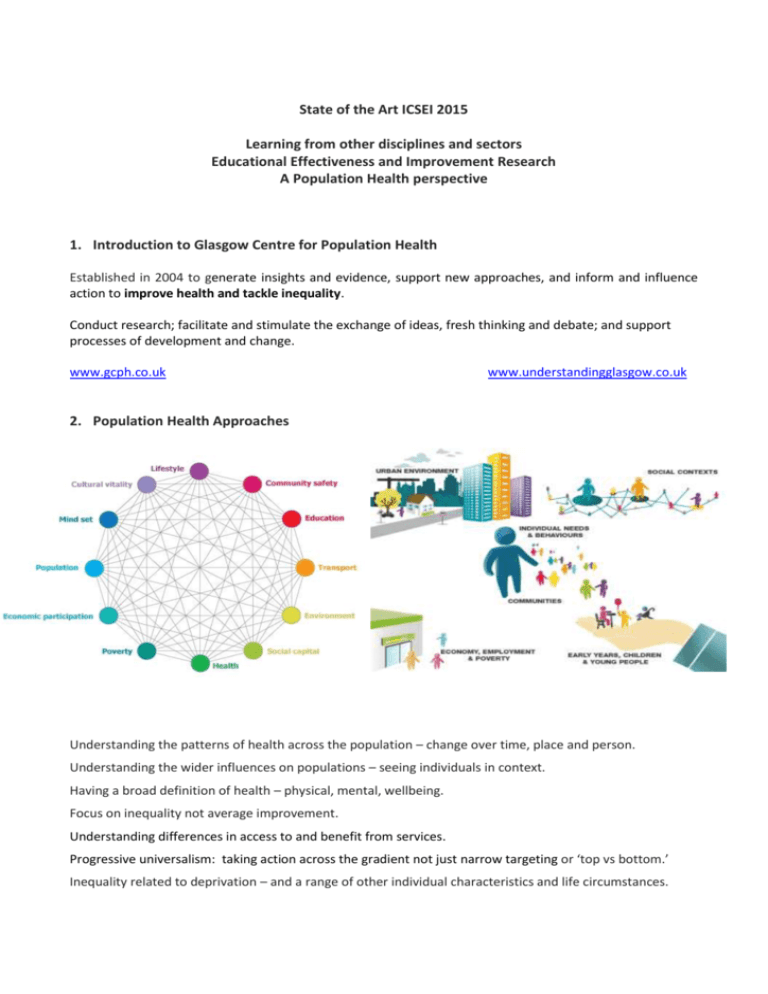
State of the Art ICSEI 2015 Learning from other disciplines and sectors Educational Effectiveness and Improvement Research A Population Health perspective 1. Introduction to Glasgow Centre for Population Health Established in 2004 to generate insights and evidence, support new approaches, and inform and influence action to improve health and tackle inequality. Conduct research; facilitate and stimulate the exchange of ideas, fresh thinking and debate; and support processes of development and change. www.gcph.co.uk www.understandingglasgow.co.uk 2. Population Health Approaches Population-level planning Understanding the patterns of health across the population – change over time, place and person. Understanding the wider influences on populations – seeing individuals in context. Having a broad definition of health – physical, mental, wellbeing. Focus on inequality not average improvement. Understanding differences in access to and benefit from services. Progressive universalism: taking action across the gradient not just narrow targeting or ‘top vs bottom.’ Inequality related to deprivation – and a range of other individual characteristics and life circumstances. 3. Some key messages and shared concerns: insights from GCPH work and population health approaches Shared influences on outcomes: poverty, home environment, social context Mutual dependency. Correlation between educational outcomes and health; good mental and physical health a prerequisite for participation and attainment The importance of social networks and social capital: schools which foster cohesion and participation; including families The role of ‘place’: learning beyond school; public services as part of the community The importance of the early years in shaping future health and education outcomes: - Developmental milestones and school readiness - Impact of adverse childhood experiences The foundations for virtually every aspect of - The importance of attachment human development – physical, intellectual and - Nurture approaches emotional – are laid in early childhood. Context matters – challenge to replicating success Barriers to access: e.g. cost of the school day is a significant issue for many families - Uniform - Food - Materials - Transport - Social participation - Stigma Disadvantage starts before birth and accumulates throughout life...........action to reduce health inequalities must start before birth and be followed through the life of the child. Only then can the close links between early disadvantage and poor outcomes throughout life be broken (Fair Society, Healthy Lives) Different experiences: age, gender, ethnicity, sexual orientation Intensive support required for high risk or marginalized groups (e.g. Looked After and Accommodated Children) The value of universal services (health, education) - of themselves - opportunity for influence on other outcomes: contact and coverage - tailoring to need 4. Implications for methods Challenges: focus and progress amid complexity, limits of knowledge and authority to act Working in partnership: research and practice Addressing common determinants and underlying influences Use of data to understand populations, variation, needs and impact Understanding limits of measurement – not just what’s picked up by services and routine data. Look beyond the data: lived experience, participation and inclusion, ‘voice’. Innovation and futures thinking Lorna Kelly Glasgow Centre for Population Health December 2015
